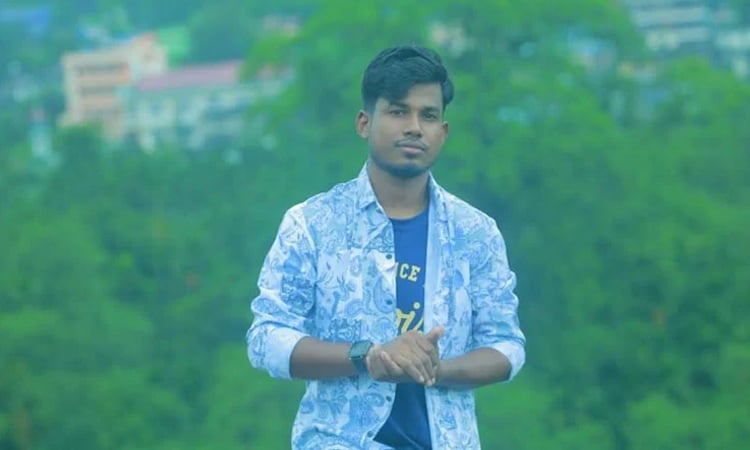On the morning of August 5, 2024, Sajjad Hossain stepped out of his modest home in Lakkhanpur Pathanpara village with a promise on his lips and fire in his heart.
“I’ll come back victorious,” he told his wife, Sumi, gently pulling his university ID card from her hesitant hands. She had tried to stop him—quietly, desperately—but he was already halfway out the door, his eyes set on Dhaka.
He was only 25.
A final-year textile engineering student at Sonargaon University, Sajjad lived two lives: one in the classrooms of the capital, the other in the humming halls of a garment factory where he worked night shifts to help support his family. His aging father, Alamgir Hossain, an imam nearing 60, had long relied on Sajjad’s income to keep food on the table. His mother, Shahida Begum, and three sisters—Asha, Anika, and the youngest, Nishad—looked up to him not just as a son and brother, but as a steady, dependable soul in an uncertain world.
But Sajjad wanted more than survival. He wanted change.
In the months leading up to that day, he had been growing restless. Like so many other young people across Bangladesh, Sajjad believed that the nation was in the grip of what he called a “fascist regime.” He felt suffocated—by rising inequality, political oppression, and a system that, in his eyes, silenced voices like his. So when the ‘March to Dhaka Programme’ was announced—a massive student-led protest aimed at demanding the resignation of Prime Minister Sheikh Hasina—Sajjad knew he had to be there.
That morning, he left home at 7 a.m., having barely eaten breakfast. He texted his father just before joining the march: “Don’t worry, Abbu. I won’t do anything foolish.”
An hour later, at around 10 a.m., Alamgir tried to call his son again—urging him to stay at the back, to be careful. Sajjad laughed lightly over the phone. “I know what I’m doing,” he said.
By 11 a.m., he had been shot.
It happened near the Savar Bus Stand. Amid the chaos, someone called for help, and Sajjad was rushed to Enam Medical College Hospital. When Alamgir arrived, his heart nearly stopped at the sight of his son—his only son—struggling to breathe, blood staining the bed beneath him.
The doctor asked urgently, “What’s his blood group?”
With what little strength he had left, Sajjad whispered: “B positive.”
They would be his last words.
He died the next day—August 6—at 2 p.m., never regaining consciousness.
At the Hatikhana graveyard in Syedpur, Sajjad was laid to rest on August 7. The village fell silent that day, mourning not just the loss of a bright young man, but the extinguishing of a future.
His father, once a man of calm resolve, was broken. “He promised me he’d come back,” Alamgir said through tears. “But they brought him back in a coffin.”
His mother, Shahida, no longer left her room. Nishad, his youngest sister, clutched his university textbooks like sacred relics. And Sumi—his wife of only seven months—was inconsolable.
“He always said that better days were coming,” she whispered, her voice hollow. “We used to dream of a small home, children, a life beyond the factory. Now it’s all gone.”
She hasn’t returned to work since his death. The machines, the noise, the faces—it’s all too much. “Every morning I wake up, I still wait for him to walk through the door,” she said.
Sajjad didn’t live to see the day that news broke—Prime Minister Sheikh Hasina had stepped down, overwhelmed by the scale and fury of the protest movement. The victory he fought for arrived too late.
But for many, Sajjad became more than a victim. He became a symbol.
Among the crowds still gathering, his photo is held high—his name chanted in rhythm with demands for a fairer future. His friends from university recall his courage, his gentleness, and his unwavering sense of duty—not just to his family, but to a country he believed in deeply.
“He gave his life hoping it would spark something greater,” said one classmate. “And maybe it did.”
In the quiet of Syedpur, his father still keeps Sajjad’s phone charged—hoping, perhaps irrationally, that one day it might ring.
But there are no more calls. Only echoes of a voice that once said, “Don’t worry, Abbu. I’ll come back.”
He didn’t. But his fight lives on.


